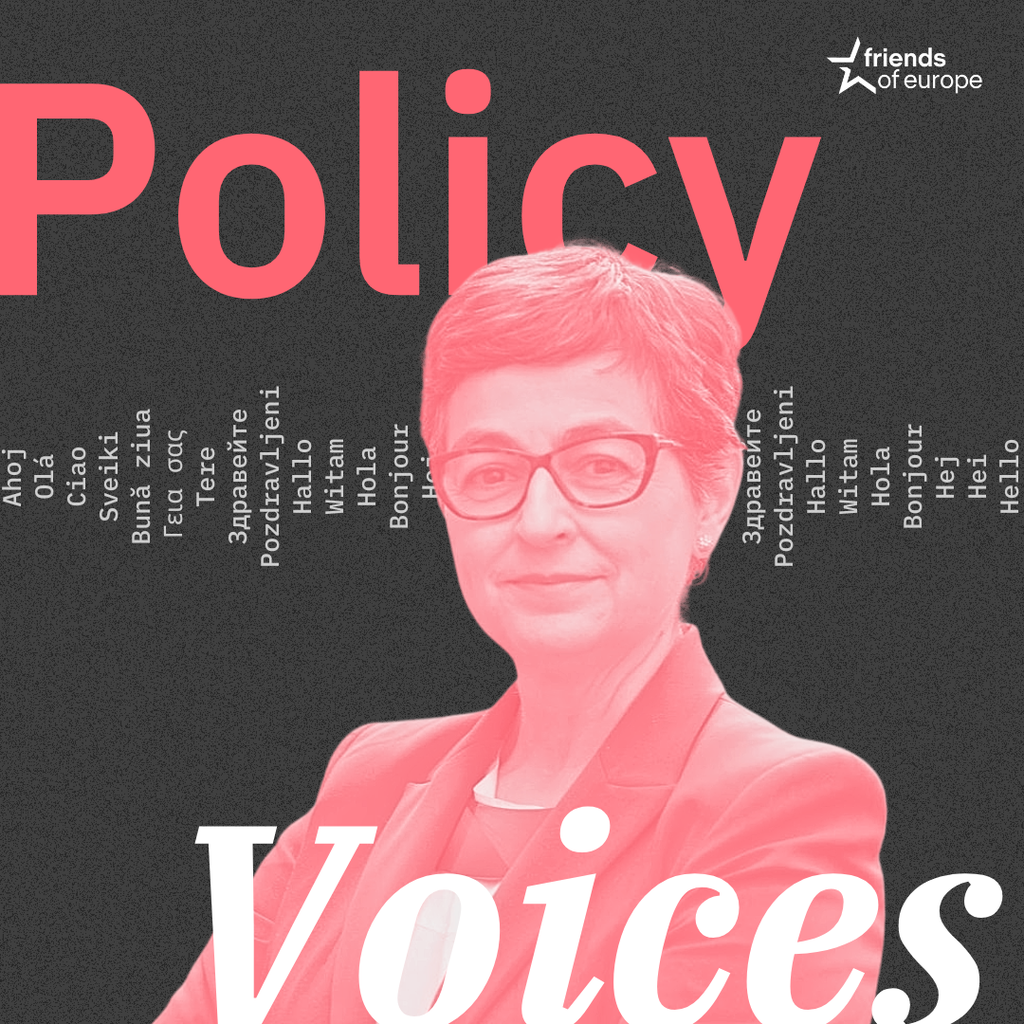Polarisation, disinformation, trust: do young French people think like…
Past event In person

- Area of Expertise
- Democracy
Democracy

Chief Operating Officer and Chief Spokesperson of Friends of Europe
What are the lessons to be learned from the ghastly Boris affair and the most corrupt, anti-democratic rewriting of public service in the history of the United Kingdom?
‘They’re all the same’ ricochets throughout UK media. If a cabinet minister, known for defending a leader that told mistruths and even misled the public, agreed to ‘toe the line’ for the cameras and explained acts of poor governance, decision-making and occasional corruption, how can that same cabinet minister now be trusted as the next leader of the Conservative Party? How can a puppet in the Boris government be trusted as anything but in the future government? Isn’t this the question the electorate and the opposition should be asking? For the Conservatives, the answer to such a question would be an inconvenient truth and no guarantee of power or re-election.
The Boris affair reveals that a government can become rotten to the core within a relatively short period of time. The checks and balances of good governance, the independence of the civil service, the Nolan principles of public life and the due diligence of public appointments failed; these were all tainted by a style of leadership and culture that was based on a truly cynical view of the electorate’s short attention span and willingness to forget, forgive and move on.
Trust is the casualty in all of this. On the back of the Boris affair and the consequent Tory party leadership contest, people interviewed in the UK and elsewhere state quite simply, ‘you can’t trust any of them’ and ‘will anything really change?’
This is not just a matter of the left, right or centre of politics
Is the public complicit in this grand affair of democracy? It is easy to turn a blind eye or simply accept the excesses of political and civil servant behaviour. Tacitly, through inaction or concealed concerns, this behaviour falls below our expectations of integrity. We are complicit in the process and effectively sustain the ongoing corrupt or faulty system.
The wiring of the UK government needs to be radically overhauled. It is clear that none of the proper levers of good governance worked; select committees failed and ‘independent’ enquiries, despite their disparaging conclusions, had no effect on a system that was operating almost entirely by the diktats of a prime minister who had no real interest in the concept of public service. Not only has it tarnished the Conservative Party, the Boris affair has affected the perspective and belief amongst citizens in the integrity and purpose of politics and politicians across the spectrum. It has done harm to the concept of politics.
Since Brexit, it has felt as if we’ve been in the longest reality Netflix serial about the corruption of power and leaders, who suddenly take hold of the largest or most reputable democracies in the world but hold very little interest in upholding democratic ideals, let alone abide by the principle of public service.
This is not just a matter of the left, right or centre of politics. The entire political spectrum is tarnished by the experience of the past five years. The centre and the left should take heed that the fate of good democracy and a good society will be difficult to revive unless they change their approach and attitude to the notion of integrity. It is the time to recalibrate the art of politics and realise trustworthy political behaviour.
It is not possible to regulate political ambitions, compromises and deal-making
A key message to the left, and in particular to Labour leader Keir Starmer, is to get a grip of the learning opportunity at hand. The electorate must be reminded that there is such a thing as politics bound by integrity and a leader that means to govern with the interests of the people at heart. The powerhouse performances of the House and talent of the many women across the benches can put heart and soul back into politics. Good old-fashioned door-knocking and constituency work can supress the current rules of the game. Soundbite politics on the floor of the House against the opposition is simply not good public policymaking, nor does it create a sense of purpose and trust among constituencies or parties. We must reimagine politics and its machinery to build trust in government and leaders.
As we enter the harshest economic environment in half a century or more, politicians and politics worldwide should take heed of recent events: the shift to the extremities of the political spectrum, such as the gains of the far-right in France; the deep-seated roots of Brexit; and beleaguered citizenry, as seen most recently in Sri Lanka. Modern day hackers and leakers have become a confident, trusted source for exposing the excesses of corruption and the weakness of democracy. The Russia-Ukraine War has exemplified the power of non-state actors. However, it shouldn’t be left to hackers and leakers to hold the mirror up to politics and show society that what we see is definitely not what we get.
Evidently, the rise of the political ventriloquist, who controls the message and creates a puppetry of the entire political system, cannot last. Sadly, it is not possible to regulate political ambitions, compromises and deal-making that take place in any political machinery. However, the crucial lesson in all of this is the necessity to invent a political statecraft that engenders trust. The hard part is now figuring out how the modern state can ensure the any leader, regardless of their political colour, is held to account across government systems, from political parties to the infrastructure of parliamentary committees and enquiries.
Past event In person

Past event In person - Prato, Italy

Past event In person

Past event In person, Berlin





Stay informed
We use cookies and similar technologies to adjust your preferences, analyze traffic and measure the effectiveness of our campaigns. Learn more about our privacy policy.